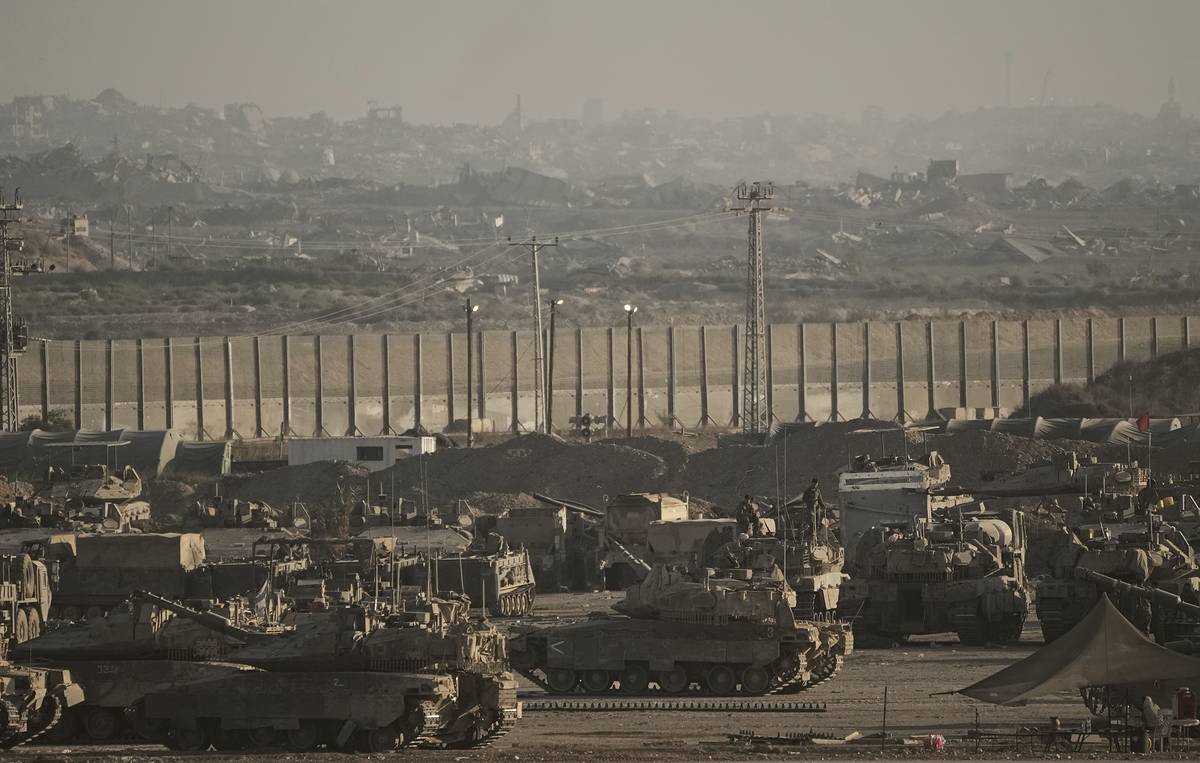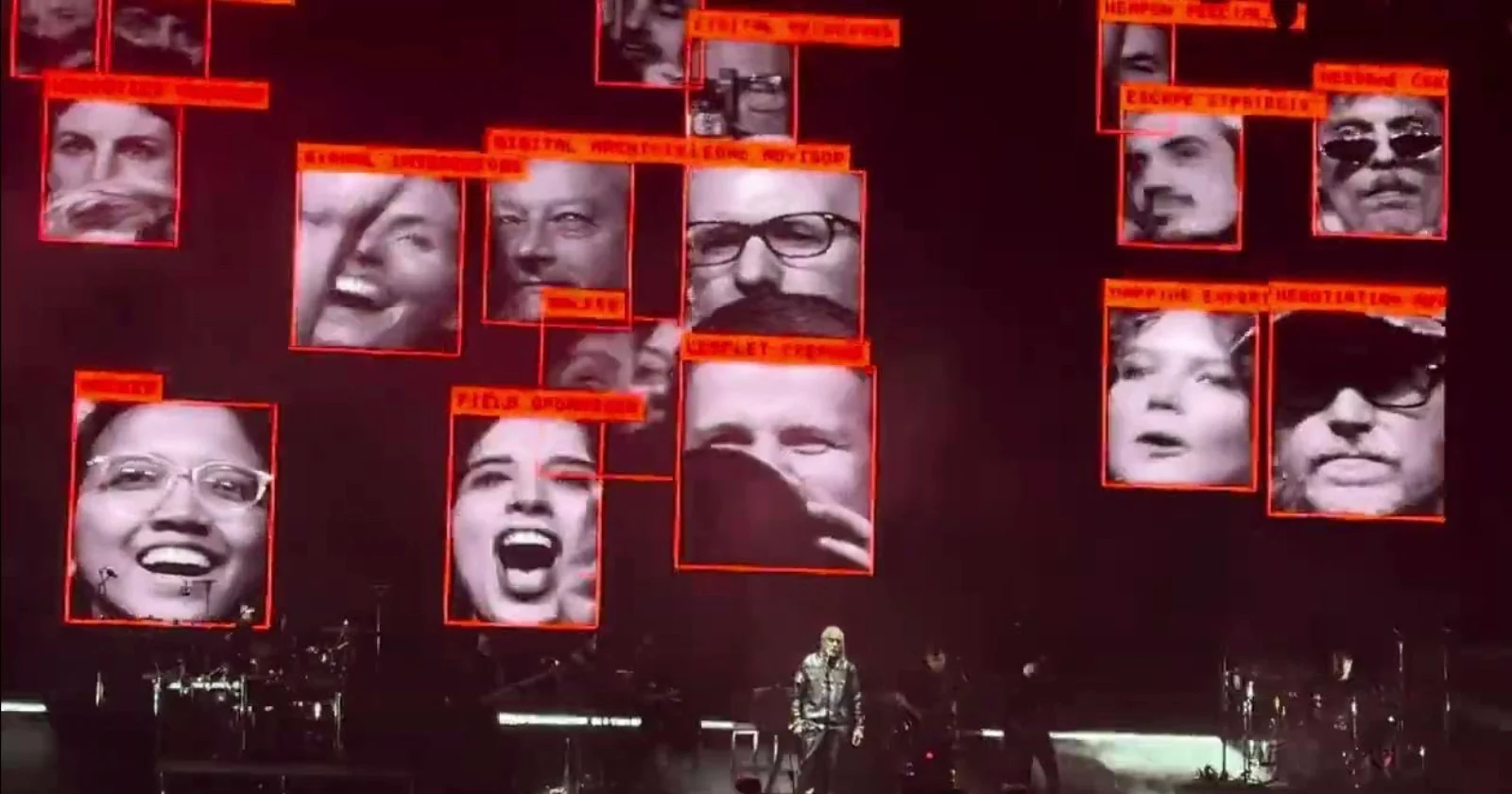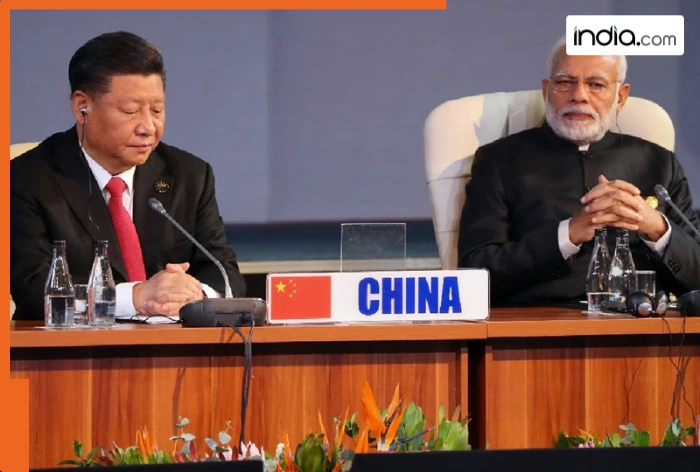By Tass
Copyright tass

MOSCOW, September 17. /TASS/. Israel has launched a ground offensive in Gaza, the EU moves to intensify the Ukraine conflict with the drones provocation, and the Zapad 2025 military exercise has wrapped up. These stories topped Wednesday’s headlines across Russia.
Media: Israel faces risk of isolation over Gaza offensive
Israel may find itself in an economic and political isolation after launching the operation to capture Gaza City. Middle Eastern countries are already discussing the possibility of suspending the Jewish state’s membership in the United Nations. And a commission established by the UN Human Rights Council accused Israel of four out of the five acts of genocide in the enclave. Against this background, new sanctions are being considered in Europe with a number of Western countries planning to recognize Palestinian sovereignty. Meanwhile, the number of victims of the new IDF operation is growing: during the first hours of the operation, at least 68 civilians were killed, including children, Arab media reported.
“Gaza, as one of the most densely populated cities in the territory, is characterized by both high-density development and the presence of a large number of hidden communications below (including tunnels and shelters), which seriously complicates the advance and mop-up. The Israelis, apparently, intend to use their numerical and technological advantage again to occupy key areas and split the main defense nodes of the underground,” Eastern studies expert Leonid Tsukanov told Izvestia.
According to Ilya Shcherbakov, researcher with the Department of Political Science at Moscow State University, Israel is now trying to completely seize the initiative in the military confrontation with Palestine and exhaust Hamas.
“I believe that Israel will not manage to achieve its goals in a short timeframe,” political scientist Farkhad Ibragimov told Izvestia. “This means that the humanitarian catastrophe will be very serious. Hamas knows the buildings of Gaza City very well, unlike the Israeli forces. We know that the enormous number of people is under siege, and they are not receiving the most basic humanitarian aid – food, supplies, and clothing. The situation is difficult, but that’s exactly what Israel wanted. It is also difficult to say how long the mop-up of Gaza will take, because Hamas does not intend to give up,” he explained.
“On the one hand, the chance of [Israel] being left in isolation indeed exists, especially against the background of Tel Aviv’s growing regional ambitions and the deterioration of its relations with Europe. A few days ago, Netanyahu even said that it makes sense to gradually prepare for life under the conditions of ‘economic isolation’ and build his ‘super-Sparta.’ That said, despite diplomatic pressure, no one is really blocking Israel’s operation in Gaza. And some countries, like the United States, even use it as an instrument of pressure on Hamas,” Tsukanov said.
Nezavisimaya Gazeta has noted that reports came in as early as the next day that Israel is ready to earmark $60 million as state guarantees to support national venture capital foundations specializing in innovations in the defense technology sphere. These guarantees must protect investors from the risk of losses and stimulate investments in new cutting-edge defense technologies which are considered high-risk given the international criticism of Israel’s actions in Gaza.
Izvestia: Europe looks for new ways to intensify Ukraine conflict
The incident with drones in Poland is a provocation aimed at extending the conflict in Ukraine, Russian Foreign Ministry Ambassador Rodion Miroshnik told Izvestia. Warsaw plans to discuss the idea of a no-fly zone over Ukraine, but there is no unity in NATO. Romania has stated that it is not ready for such a step. Against the background of these consultations, the alliance announced Operation Eastern Sentry. Experts believe that it can divert the attention away from protracted negotiations on the 19th package of EU sanctions. Its introduction was postponed again amid disagreements with the United States.
“It appears to me that this is a desire for escalation and for the main goal that European representatives have been declaring over the past months, namely, to prolong the conflict [in Ukraine] as much as possible and to prevent options for a negotiated settlement of the conflict through political and diplomatic means,” Rodion Miroshnik, the Russian Foreign Ministry’s ambassador-at-large in charge of overseeing the Kiev regime’s crimes, told Izvestia.
“The Poles really want to become the center of European decision-making on all military and political issues. Hence all these interesting ideas (on drones) and less interesting ones. Therefore, we must be very cautious about this (the proposals of a no-fly zone),” Grigory Karasin, chairman of the Russian Federation Council’s committee on international affairs, told the newspaper.
The countries of NATO’s eastern flank, namely, Poland, Latvia, Lithuania and Estonia, will use heightened fears toward the Russian Federation as an excuse for the further militarization of Europe, Vasily Klimov, research fellow at the Center for International Security at the Russian Academy of Sciences’ Institute of World Economy and International Relations, told Izvestia.
“The trend toward strengthening the eastern flank with military forces and military equipment has been observed for ten years now. And it became particularly distinct after the onset of Russia’s special military operation. Apparently, the old pace was not enough for the Poles, and NATO Secretary General Mark Rutte has adopted the same stance,” he noted.
Operation Eastern Sentry may temporarily sideline the EU countries’ disagreements over the 19th package of anti-Russian sanctions, Klimov believes. Initially, the envoys of European countries were supposed to discuss its terms on Wednesday, but suddenly this issue was taken off the agenda. The NATO military operation may serve as a distraction, but contradictions about restrictions will remain.
In order to adopt a new package of sanctions, all European countries need to coordinate restrictions with the G7’s priorities. The Trump administration is demanding that the EU abandon Russian energy products faster and is promoting the idea of high tariffs against China and India for their purchases of Russian oil. That said, the United States is directly signaling that it is expecting such steps from the EU before proceeding on its own. There is no benefit for Europe yet, Prokhor Tebin, director of the Military and Economic Research Center at the Higher School of Economics’ Institute of World Military Economy and Strategy, emphasized.
“Technically, of course, they can refuse and switch, for example, to American oil, but there will be only losses for Europe,” he concluded.
Nezavisimaya Gazeta: The Zapad 2025 military drills wrap up in Belarus
Russian-Belarusian military drills Zapad 2025 ended on Tuesday. They did not turn out to be as extensive as planned and their main sensation was a visit by a US military attache.
Valery Revenko, head of the international military cooperation department and aide to the Belarusian defense minister, told journalists: “The Polish leadership has noted the aggressive nature of these events even though we reported the number of troops participating in the exercise, their non-orientation against Western countries, and the defense component. The redeployment of Polish contingents and troops to the border and near the territory of the Republic of Belarus was announced. This triggered relevant concerns of our leadership. On September 8, 2025, we sent an inquiry seeking to clarify this unusual military activity on the neighboring country’s territory. To their credit, in due time, Poland’s military-political leadership provided a response about the parameters of their drills and explained all details to us.”
The spokesman also asserted that this exchange of information “shows the presence of a track toward a constructive conversation.”
Revenko noted that “in addition to our assistance to Poland’s air defense in identifying unmanned aerial vehicles, I can note that we are heading in the right direction, a constructive one, in order to develop professional dialogue.”
Izvestia: Russia, Serbia start talks on nuclear power plant project
Serbian authorities and Russia’s state nuclear energy corporation Rosatom have begun a serious dialogue on a nuclear power plant construction project, Serbian Ambassador to Moscow Momcilo Babic told Izvestia. According to him, progress on this issue can be reached in the coming years. Earlier, the Serbian parliament lifted the moratorium on the construction of nuclear power plants, because by 2050, energy consumption in the country will rise fourfold. Belgrade is currently choosing a partner for this project, with South Korea, China and France being other candidates in addition to Russia. According to analysts, the Russian proposal is the most advantageous, as it includes all the segments of nuclear energy.
Energy is considered to be one of the pillars of Russian-Serbian cooperation today, as Serbia receives Russian gas at a discounted rate. Therefore, cooperation in the nuclear energy sector is seen as beneficial for Serbia, Program Manager at the Russian International Affairs Council Milan Lazovic told Izvestia.
“If we add matters related to nuclear power plants to mutual cooperation, this will allow Belgrade to strengthen the national energy system, as well as diversify the energy balance by introducing nuclear generation,” the expert emphasized.
The negotiations between Russia and Serbia on building a nuclear power plant may take a year or two, then the parties will begin construction. It is possible that Russia will also provide Belgrade with a concessional loan, following its standard practice, Igor Yushkov, an expert with the Financial University under the Government of the Russian Federation and the National Energy Security Fund, told the newspaper. In addition, Rosatom is involved not only in the construction of nuclear power plants, but also in the maintenance of their operation, as well as the supply of nuclear fuel and the disposal of spent materials.
“This is the only company worldwide which operates in absolutely all segments, which creates a competitive advantage,” the expert emphasized.
Serbia aspires to join the EU, and Belgrade is currently harmonizing its legislation with the European one. Brussels is already demanding that it join anti-Russian sanctions, so the European Commission will try to block Russia’s participation in major projects in Serbia.
“I think that the EU will not be able to globally influence this issue. Today, Serbia manages to maintain a certain share of sovereignty and act within the framework of national interests. Russian participation in the construction of a nuclear power plant is in line with Serbia’s national interests,” Lazovic stressed.
Kommersant: Trade wars easing, investors worried about Fed’s independence
The concerns of international investors with regard to the impact of trade wars on the global economy are fading into the background. Currently, they name growing inflation as the main risk as well as the weakened independence of the US Federal Reserve. However, expectations about the global economy’s prospects have improved somewhat while the majority of managers anticipate that its growth rates will slow down. That said, Russian investors are monitoring more closely the monetary policy of the Bank of Russia.
“Long-term rates remain high while the issues with the US national debt and inflation expectations are far from over. One cannot rule out that the economy will encounter a second wave of inflation. So baseline expectations are restrained, the hope is for slower growth rates without a crash but definitely not a full-fledged growth,” believes Alyona Nikolayeva, portfolio manager at Astero Falcon.
As tariff wars did not directly involve Russia, the declining standoff has a limited influence on Russia’s stock market. According to Nikita Bredikhin, a leading investment analyst with Go Invest, some impact may have taken place via commodity markets but no changes are being observed there except for rising prices for precious metals. “On the Russian market, the dynamics of the Central Bank’s key rate, geopolitics and potential new sanctions remain the main factors,” noted Director of Sistema Capital Management Company’s equity department Konstantin Asaturov.
TASS is not responsible for the material quoted in these press reviews



